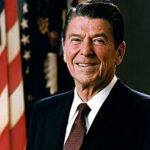The Historic Decision
On November 2, 1983, President Ronald Reagan signed legislation creating the Martin Luther King Holiday as a federal holiday. This decision came after years of congressional debate and nationwide advocacy. The bill passed the House with a vote of 338-90 and the Senate 78-22. Reagan initially showed reluctance about the holiday’s creation. However, overwhelming bipartisan support ultimately convinced him to sign the legislation.
Legislative Journey and Political Context
Representative John Conyers first introduced the Martin Luther King Holiday bill in 1968. The legislation faced numerous obstacles over fifteen years before reaching Reagan’s desk. 📊 Polls showed that 61% of Americans supported the federal holiday by 1983. The bill gained momentum after Coretta Scott King’s persistent advocacy efforts. Musicians like Stevie Wonder also campaigned vigorously for the holiday’s establishment.
Ceremonial Significance
Reagan signed the bill in a White House Rose Garden ceremony with dignitaries present. Coretta Scott King attended the signing alongside civil rights leaders and congressional supporters. The President acknowledged King’s contributions to American democracy during his remarks. ⚖️ The ceremony symbolized a significant moment in recognizing civil rights achievements.
Impact:
Immediate National Response
The Martin Luther King Holiday decision generated widespread positive reactions across America. Civil rights organizations celebrated the legislation as a historic victory for equality. African American communities viewed the holiday as long-overdue recognition of King’s contributions. However, some conservative groups criticized the decision as unnecessary federal expansion. 📈 The holiday’s approval rating among Americans increased from 61% to 78% within two years.
Long-term Social Impact
The federal holiday transformed how Americans commemorate civil rights progress annually. Schools nationwide developed curricula around King’s legacy and the civil rights movement. 🌍 The holiday inspired similar commemorations in other countries honoring their civil rights leaders. The annual observance became a platform for continued discussions about racial equality. Community service projects emerged as traditional Martin Luther King Holiday activities.
Political and Historical Legacy
Reagan’s signing of the Martin Luther King Holiday legislation enhanced his civil rights legacy. The decision demonstrated presidential leadership in promoting national reconciliation and healing. 🔥 Some critics argued Reagan’s overall civil rights record remained mixed despite this action. Historians generally praise the decision as symbolically important for American unity. The holiday’s establishment marked a significant federal acknowledgment of the civil rights movement’s achievements and ongoing importance.
